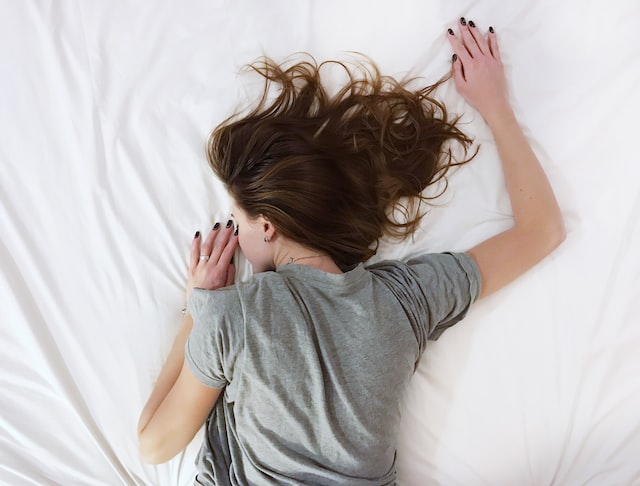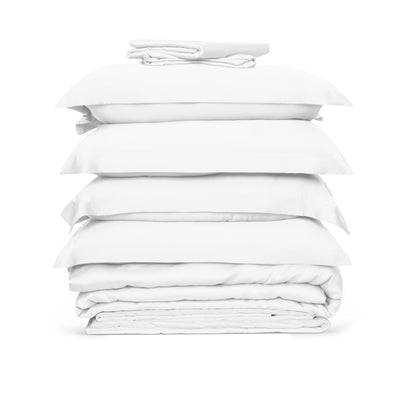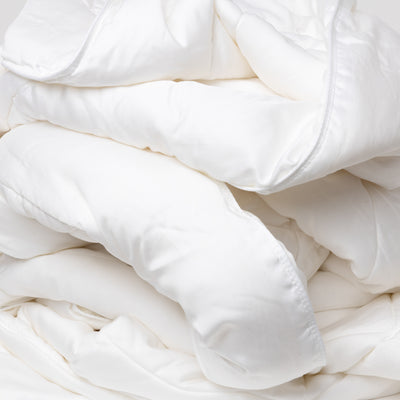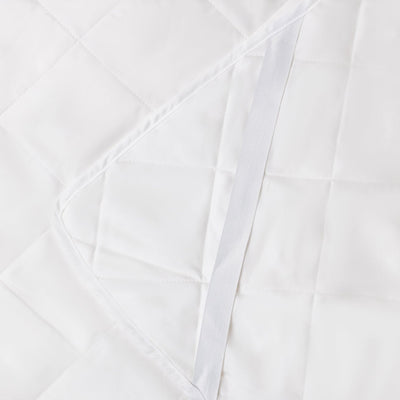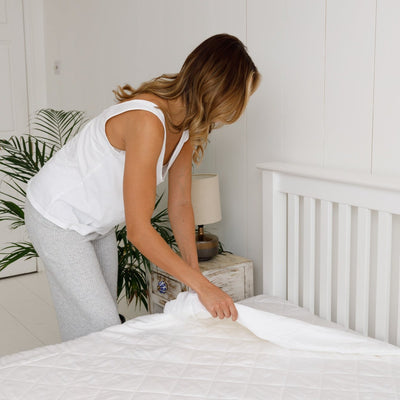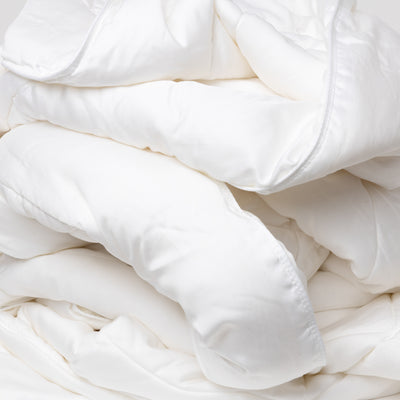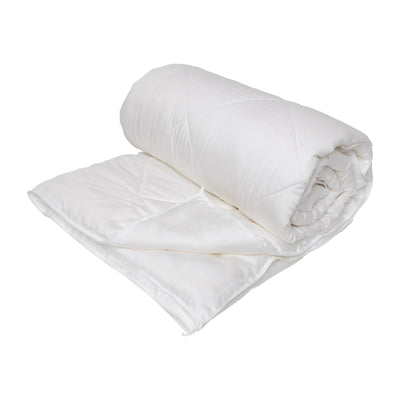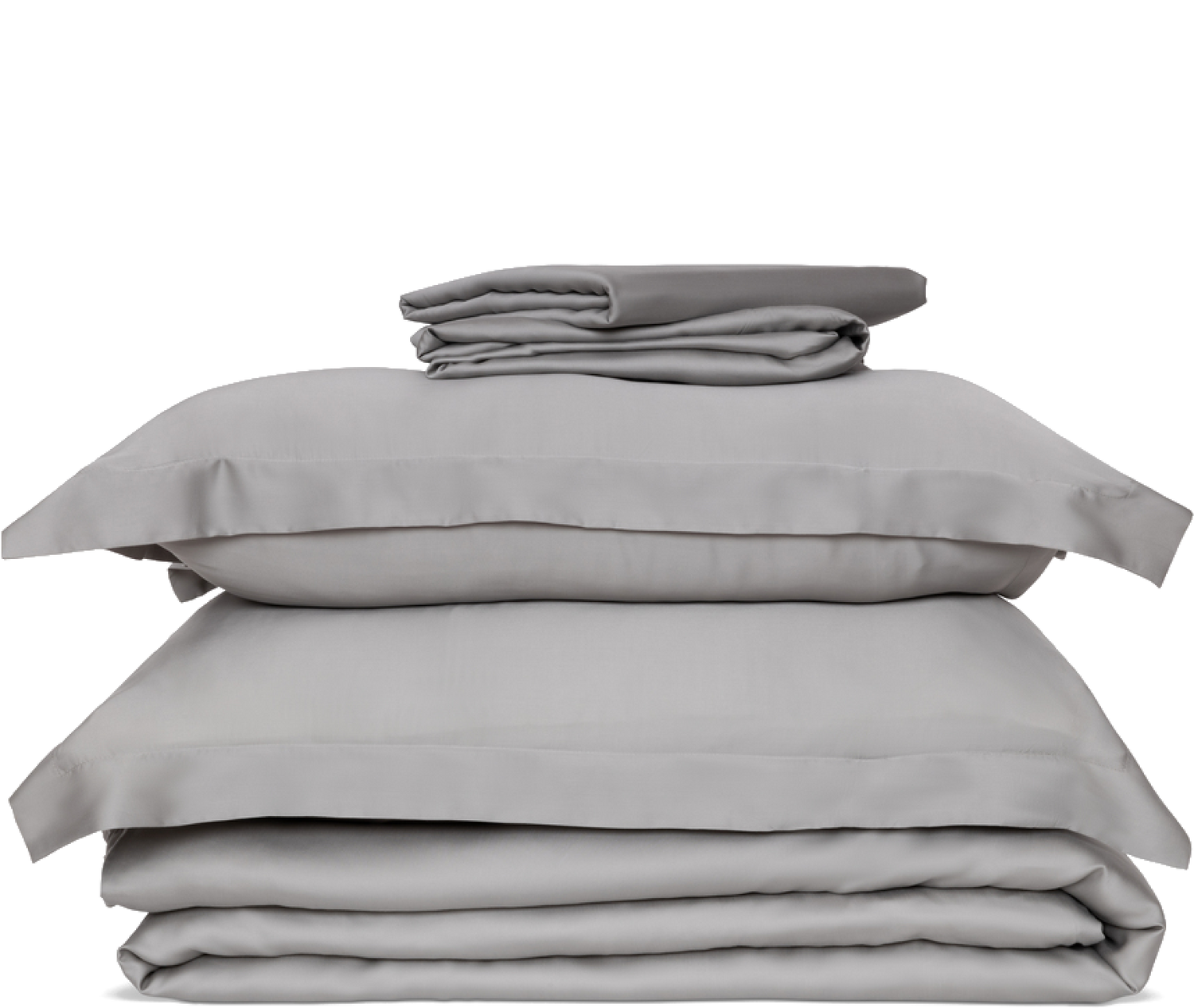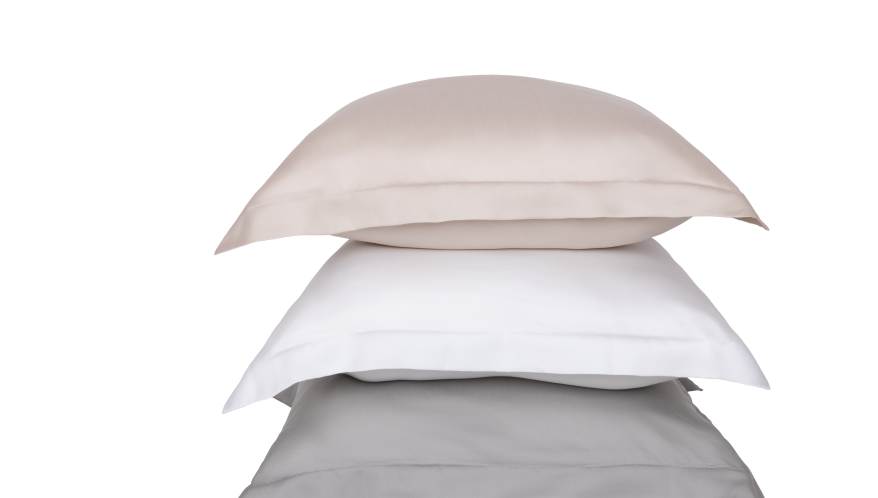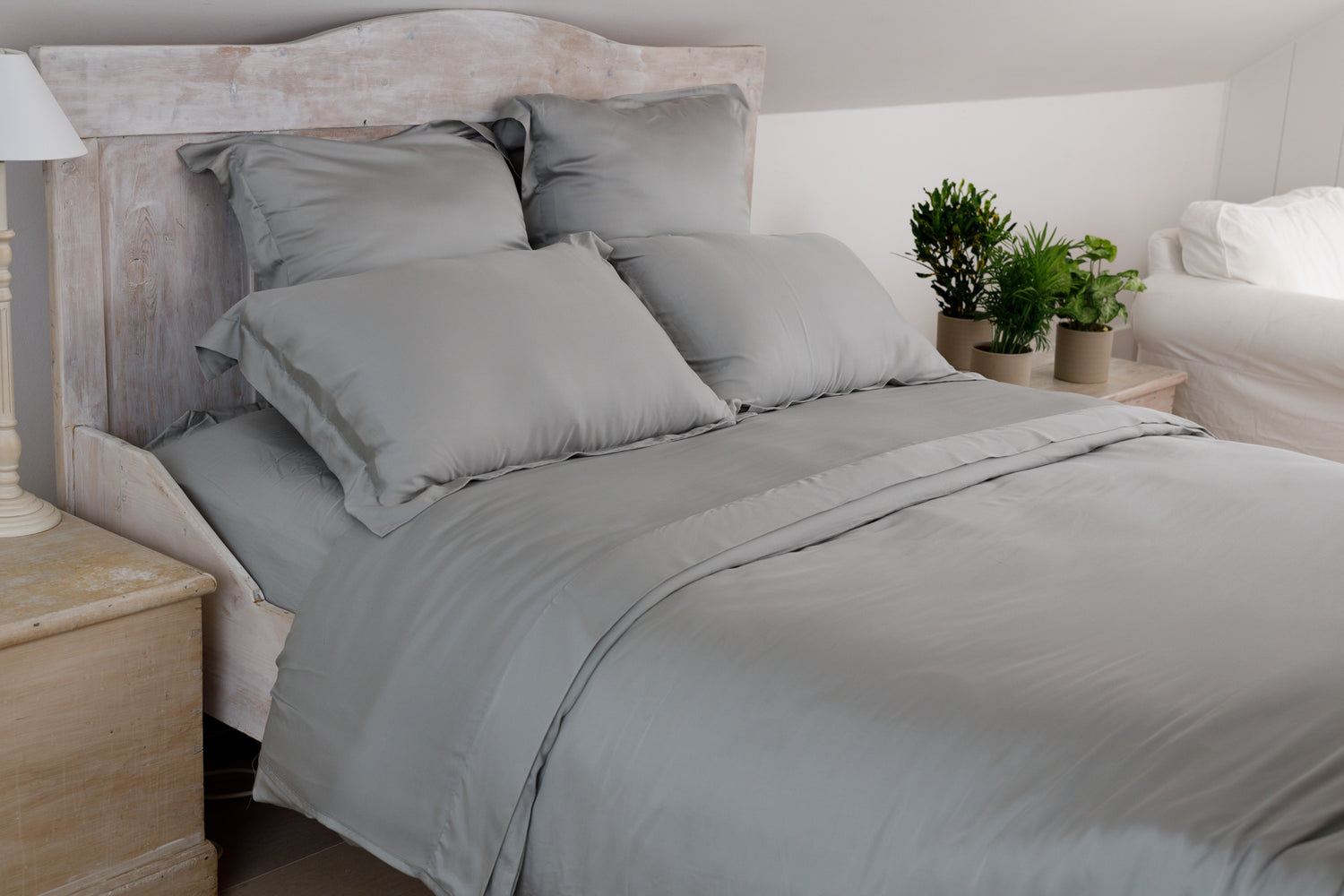Softness is, understandably, a huge consideration for people when buying new bedding. After all, you spend roughly a third of your life in bed; so you need to be comfortable. But what are the softest sheets?
To help you out, we’ve explained what makes sheets so soft, the most popular bedding materials and their benefits, and what you should consider before choosing your next set of bed sheets.
What makes bed sheets soft?
When choosing new bedding, it’s important to have an awareness of the different factors that can contribute to a sheet’s ‘softness’. We’ve looked at three key areas: thread count and ply, processing, and fibre.
1. Thread count and ply
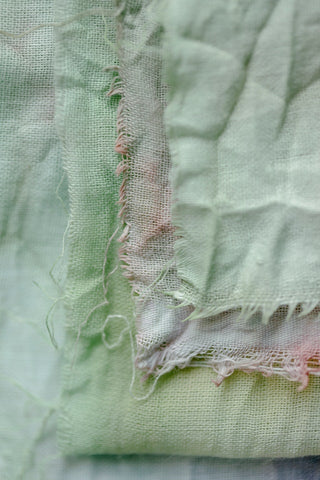
Thread count refers to the number of combined horizontal and vertical threads that are woven together within each square inch of fabric. So, the more threads within a portion of fabric, the higher the thread count. Meanwhile, ply refers to the number of fibres that combine to make a single thread. For instance, 2-ply fabric means the threads are comprised of two fibres twisted together.
Both thread count and ply are important factors to take into account, because they give an indication of how the fabric is manufactured, with higher thread counts typically considered to be softer.
2. Processing
As a general rule of thumb, the less processing stages a bed sheet goes through, the softer it’ll be, which includes colouring and dyeing. While this can sometimes make it trickier to match your sheets to your bedroom décor, with white becoming your new go-to bedding option, you’ll soon realise you made the right choice when you slip into a luxurious slumber at the end of a long day.
3. Fibre and material
The fibres a material is made from are a crucial factor when comparing the softness of bed sheets, with each offering a series of qualities and benefits. For instance, some fabrics are hypoallergenic, some moisture-wicking, and some extremely soft. When buying new bedding, it’s useful to look out for sheets that offer all three, for guaranteed luxury.
The softest bed sheet materials
Now you know what to look out for when choosing new bedding, it’s time to compare the best bed sheet materials. From cotton to silk, and everything in between – including sustainable alternatives like Tencel and bamboo - explore ten of the most popular types of bed sheet fabric.
Percale weave
Percale weave is made from 100% cotton, with a tight knit that ensures long-lasting bedding. Other benefits of percale weave cotton include easy breathability for a cool and comfortable night’s sleep, a trademark crisp feel, and high-quality durability.
Egyptian cotton
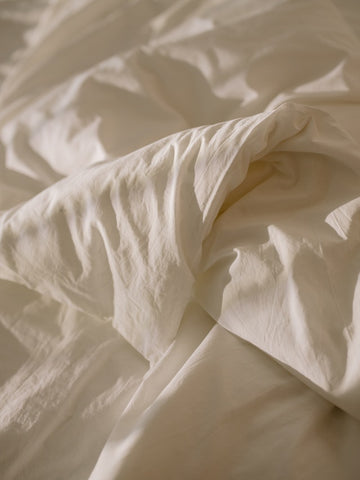
Owning Egyptian cotton bedding has long-become a symbol of luxury; and for good reason. Famous for its silky texture, Egyptian cotton is a long staple fibre used to produce durable bedding that gets softer after each wash. Other key benefits of Egyptian cotton include breathability and excellent temperature regulation, luxurious softness, and moisture wicking properties.
However, beware of false advertising when purchasing Egyptian cotton. If it’s not accredited, you may be buying bedding made from regular short staple cotton – or even synthetic polyester.
Pima cotton
Similarly to Egyptian cotton, although typically grown in the US rather than on the banks of the Nile, Pima is another type of cotton manufactured using long staple fibres. This helps to produce a smooth, silky, and super soft bed sheet material that provides a comfortable and cosy night’s sleep. You’ll also find it’s almost-completely wrinkle resistant and highly durable, thanks to its extremely high quality.
Bamboo
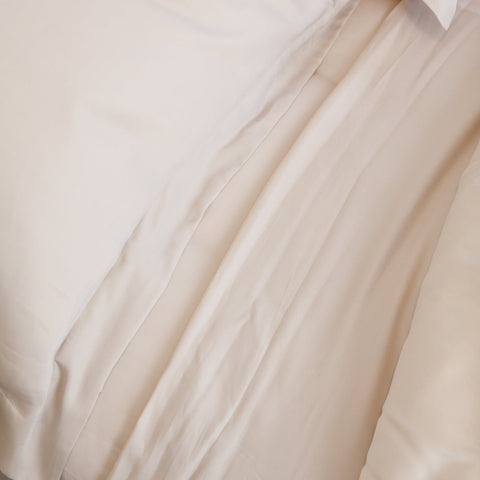
A luxurious alternative to cotton, bamboo provides smooth softness and strong durability, giving you long-lasting bedding that holds up.
Not only that; the breathable fabric is also extremely effective at regulating temperatures, perfect for keeping you cool in summer and cosy in the cold, while its hypoallergenic and moisture-wicking properties reduce the risk of discomfort and allergic or asthmatic reactions.
And to top it off, sourced from the fast-growing bamboo plant, bamboo bedding is a completely sustainable and ethical choice.
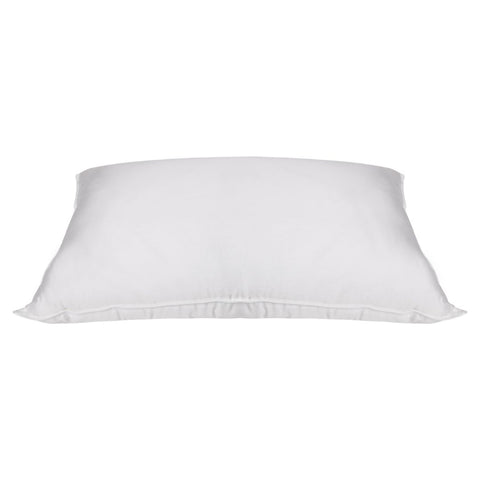
Shop Ethical Bedding's Organic Eucalyptus & Bamboo Pillow
Sateen
Sateen cotton is typically manufactured using a ‘one under, four over’ weave, which creates a soft and smooth fabric that’s silky to touch and gives your bedroom a luxury aesthetic. When buying sateen, expect a durable material (if looked after correctly) that provides a cosy and comfortable night’s sleep.
Silk
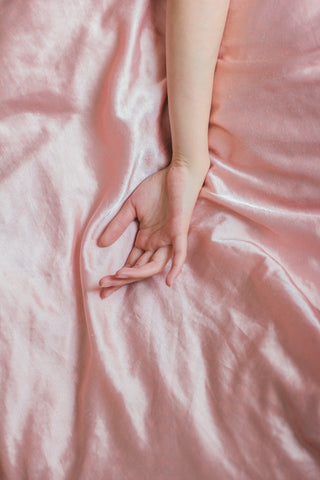
Famously smooth, silk is considered by many to be among the most luxurious fabrics to choose from, and perhaps the best bed sheet material – of course, this is personal preference, though! With an immediately-identifiable sheen that boasts quality and comfort, silk bedding can also give your bedroom the exquisite finishing touch you’ve been looking for.
Aside from its excellent aesthetic, though, silk bedding also has a string of other benefits: it’s temperature regulating, moisture wicking, hypoallergenic, non-irritating, and aids hair care.
Tencel
Tencel is a trademarked brand of lyocell, sourced from the eucalyptus tree. An incredibly smooth fabric that’s often likened to silk, Tencel is among the softest bed sheet fabrics - and gets softer with each wash. Other benefits of Tencel include:
- Long-lasting and durable
- Breathability and moisture wicking properties
- Anti-bacterial and hypoallergenic
- Wrinkle resistance
- Environmentally-friendly and wholly sustainable
- Soft, comfortable, and cosy
When compared to cotton, Tencel bedding also typically comes out on top in a number of categories, including quality, warmth, and environmental impact. In fact, manufacturing Tencel uses 95% less water and 30% less energy than it does to make cotton.
Microfibre
Microfibre bedding is made using synthetic (man-made) threads, such as polyester. Not only does this allow the manufacturing of smooth and soft bed sheets at an affordable price, but they’re also naturally hypoallergenic, wrinkle resistant, and easy to look after.
Flannel
Flannel is manufactured using loose-weave cotton, with a thick and heavy feel that helps to trap body heat, making it a cold-weather favourite among Brits. The key benefit of flannel, however, is its softness, largely thanks to the long staple fibres used in production.
Linen
Linen is a natural fibre often used to produce high-quality and super soft bed sheets. Strong and durable, linen bedding is a popular, and often luxurious, alternative to cotton, with breathability, cooling properties, and allergy-resistance coming naturally. But not only that; it’s effortlessly stylish and can help to enhance any bedroom aesthetic.
How to choose which bed sheets are right for you
Finally, you might have an idea of the type of material you want, but there are some specific considerations to take into account. We’ve outlined the key things to think about before committing to buying new bedding.
When choosing sheets, consider the weave of the material. For instance, a sateen weave gives you soft and luxurious bedding, while a percale weave provides durable and long-lasting sheets. However, it’s important to acknowledge that there’s no right or wrong decision when it comes to choosing the best bedding material and weave: it depends entirely on your own preferences.
Thread count should be an important consideration when choosing bed sheets, as a higher count typically means a soft fabric. However, any single-ply thread count between 200-400 is typically considered to be of high-quality.
If you have allergies, whether they’re skin or asthmatic reactions, make sure to choose a hypoallergenic fabric that’s specially designed to reduce sensitivity. For example, you might want to consider cotton, bamboo, or silk.
Don’t overlook colour and pattern when picking out your new bed sheets, as they can go a long way towards complementing your bedroom aesthetic and completing the look you’ve been dreaming of. You should also consider whether you want flat sheets vs fitted sheets, depending on each’s different style and benefits.
When styling your bedroom, make sure you choose bed sheets that comfortably fit over your bed. If you’re unsure on the dimensions you should buy, check out our complete bedding size guide.
Finally, take your mattress’ thickness into account when buying bed sheets, and pick bedding that’s slightly bigger than recommended if necessary. For context, the typical mattress is between 7-9 inches deep, so anything thicker will need bigger sheets.
Hopefully you’re now feeling better-equipped to choose between different types of bedding, whether you opt for high-quality, silky soft Tencel or classic cotton. And for even more expert insight from our sleep experts, head on over to the Ethical Bedding blog.
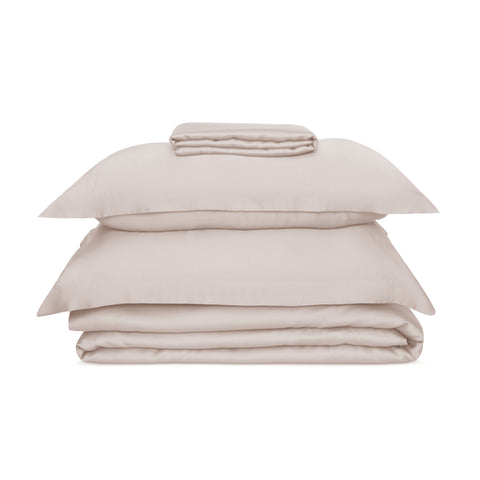
FAQs when choosing the softest bed sheets
We’ve answered the most common questions asked by our customers about choosing soft bedding.
Should I get bamboo or cotton bed sheets?
If you’re choosing between bamboo and cotton bed sheets, consider the benefits of each. Both are comfortable and high-quality fabrics, but bamboo bedding is considerably more eco-friendly as it’s sourced from the renewable and fast-growing bamboo plant.
What is the best thread count for bed sheets?
There is no one correct answer to the question ‘what is the best thread count?’, as comfort is typically down to your own personal preferences. However, single ply bedding with a thread count between 200-400 is often considered to be of good quality.
What are the best soft sheets for hot sleepers?
If you find that you’re a hot sleeper who tends to suffer from night sweats, you should consider choosing bedding that offers excellent breathability and moisture-wicking properties.
Not only will this keep you drier at night, but you’ll also find it easier to keep cosy and comfortable without overheating. Examples of the best cooling bed sheets include Tencel, cotton, and linen.

